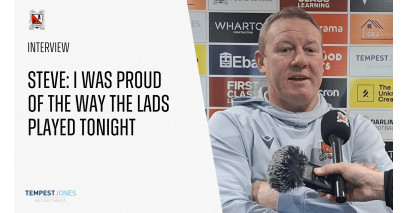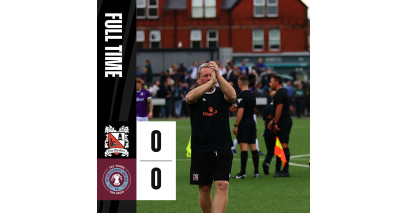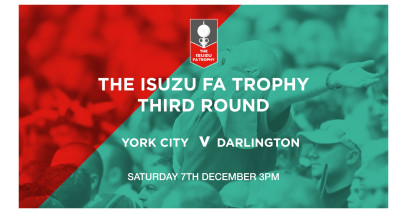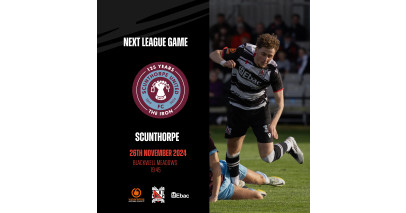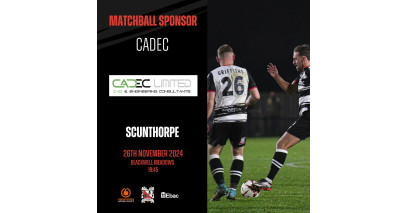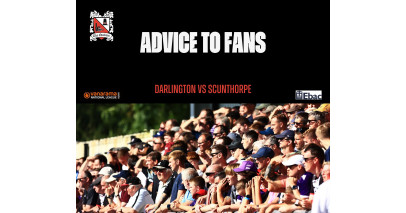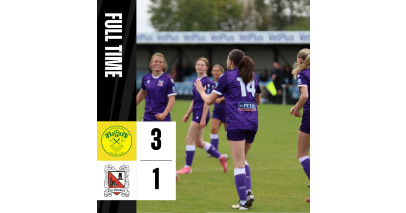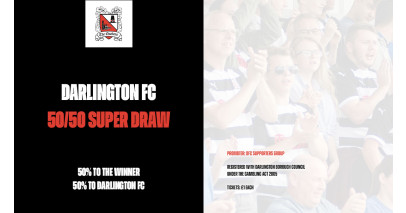Farewell to Feethams -- the memories of Ken Furphy
By Ray Simpson
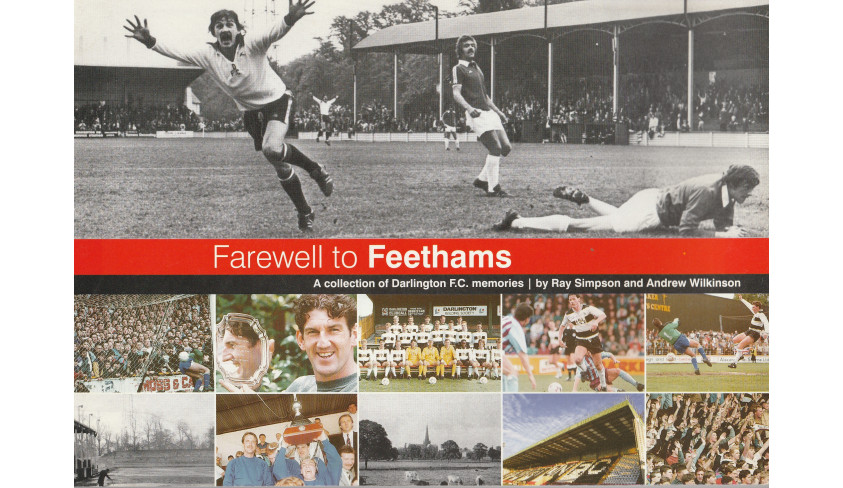
Member of the team that beat Chelsea in 1958
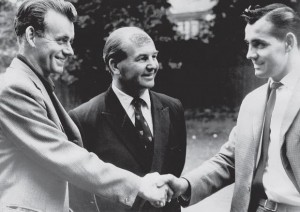
Ken Furphy, who was part of the team that defeated Chelsea in the FA Cup in 1958, sadly passed away five years ago.
Ray Simpson asked him for his memories for the Farewell to Feethams book. Ken went on to manage Workington, Watford and Sheffield United, amongst others later in his career, and was also on the England staff at one point under the late Graham Taylor.
Ken joined the club in December 1953 after finishing his National Service, and stayed until the end of season 1961-62, after playing 349 games in all competitions.
“I was called up for National Service when Everton were interested in me, and when I was posted to the north east, I wrote to all the clubs asking for a trial, but only Darlington replied.
“I had a trial when Bobby Gurney was manager, but he didn’t ask me to come back. I spoke to the chief scout at the time, a chap called Collins, and he told me that he and Bobby thought I didn’t have the stamina..
“I told him I was second in the Durham cross country championships once, and could I have a retrial in a probables v possibles game.
“They printed the names of the players in the papers in those days, and I wasn’t included. But on the day of the game, a telegram arrived at my house at 12.30 asking me to come, because a chap called Brown had dropped out.
“The problem was, I was a full back, and I’d never played there in my life, because I was a midfield player. I must have done all right, because they took me on at £1 per week, and £3 per match.”
Ken played at right back for three months, until he was switched to right half.
Ken never missed an FA Cup tie during his years at Feethams, and was part of the side that reached the fifth round in 1958.
“We played Rochdale in the first round, and I marked a chap who used to play for Everton. I tackled him really hard, maybe a little over-zealous, and I knocked him over the advert hoarding into the crowd. He had to go off injured.
“At the end of the game, a spectator ran on to the field and kicked me, so my dad ran on and whacked the spectator!”
Because of the injury picked up in that incident, Ken was going to miss the next two league games, so manager Dickie Duckworth had a job in mind for him ahead of the next cup tie against Boston. “He told me that he wanted me to go and beat Boston for him. I was a qualified coach by then, so I took my dad with me, and we want and had a look. We beat them 5-2, and maybe my trip did some good.”
It was Norwich away in the next round. “Norwich really fancied their chances, because they had reached the semi finals of the cup the previous year. When we ran on to the pitch, the PA announcer said: “I’m sure you’ll be wishing us luck in the next round.” That really got us going, and we beat them 2-1.”
Mighty Chelsea awaited in the next round, but Ken wasn’t too sure of his place in the team.
“I thought Dickie didn’t like me much,” Ken says.
“I had a feeling I might not be playing at Stamford Bridge. When he read the team out, he said that at right half, he was going to play Billy Rutherford, so I thought that I was out of the team.
“Then Dickie said to me that I was going to play at left half to mark Jimmy Greaves who he called a flash in the pan”
Quakers led 2-0 at half time at Stamford Bridge. “Ronnie Harbertson, who had a powerful right foot, scored one of the goals. When we came off at half time, Joe Turner, our goalkeeper, said that we only had to hold on for another 45 minutes,. I replied that we could kill these lot off.”
Quakers very nearly did. They led 3-0 in the second half, and missed a good chance for a fourth. “Dave Carr dribbled around the keeper, turned to look at us, and then backheeled the ball towards the net, but the ball stuck in the mud. That would have made it 4-0.”
Chelsea hit back to draw 3-3, but for the replay four days later, Greaves was omitted. “Chelsea said that he wasn’t used to the hustle and bustle.”
Quakers won that game 4-1, but went out in the next round at Wolves, by 6-1.
Ken actually helped to build part of Feethams one summer – the terracing along the West side.
“The supporters club managed to get a lottery going, and they suggested that they did a few things to the ground, which needed doing, because the club’s money went on to the team.
“So Keith Morton and I helped the supporters by lifting a few bricks and mixing some cement.”
Keith was one of Ken’s closest friends in the team, and in one derby game against Hartlepool, he was badly injured.
“One of their players knocked Keith down on the halfway line, and stood on his neck.
“Keith said immediately that his neck was broken, and that he had pins and needles in both his arms. I told Dickie Deacon, our trainer, who helped him to his feet and took him off the field, which isn’t the sort of thing they would do these days.
“At the final whistle, Keith was sitting in our dressing room on a concrete base, with a blanket around him and a cigarette dangling from his mouth. His eyes were gone, and I told Dickie Deacon to call an ambulance.
“But the manager, Dickie Duckworth told him not to, and to have a shower instead. I was really annoyed and Dickie and I squared up to each other. The players separated us, and I took Keith to hospital, where they diagnosed a broken neck, and he had a very serious operation.”
Ken carved out a very successful career as a manager after leaving Feethams, taking charge of Workington, Watford, and Sheffield United.
“I had no aspirations for the Darlington job. I applied to become a physio, but the FA advised against it.
I had a chance of a job outside football with my uncle, so Eddie Carr, the manager, agreed to knock £2 off my wages so I could go part time.
“Then one day, Eddie said that he wanted somebody younger to do my job, even though I was only 32 and had fought off possible replacements. Workington wanted me to go to them as player-manager, so they interviewed me, and sent me a letter offering me the job.
“The board weren’t too happy, and told me that I wasn’t going to Workington. I went on holiday, and when I came back, Eddie said that Darlington wanted £1500 for me. Workington agreed to pay it, and I asked for £500 of it, which I spent on a car for my new job.”




